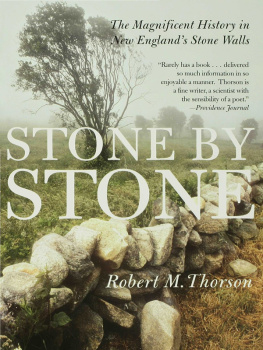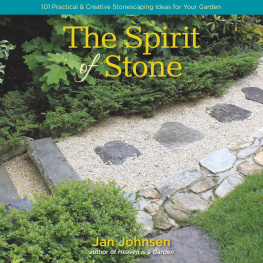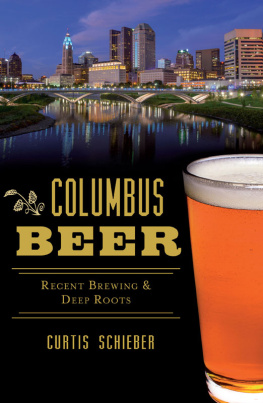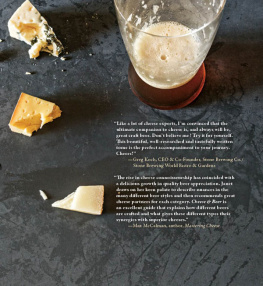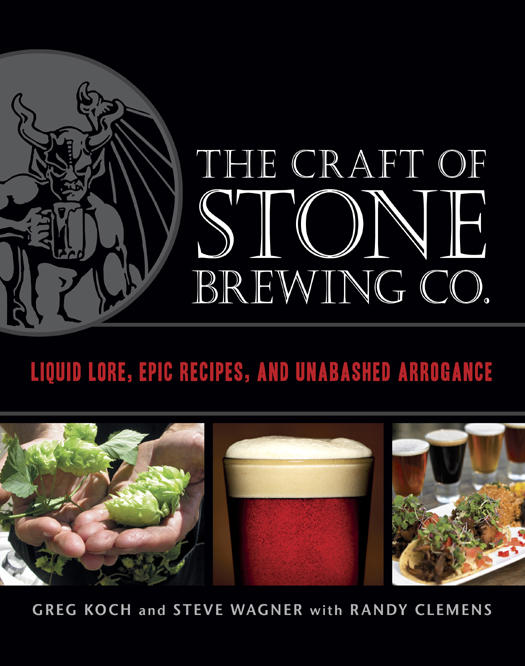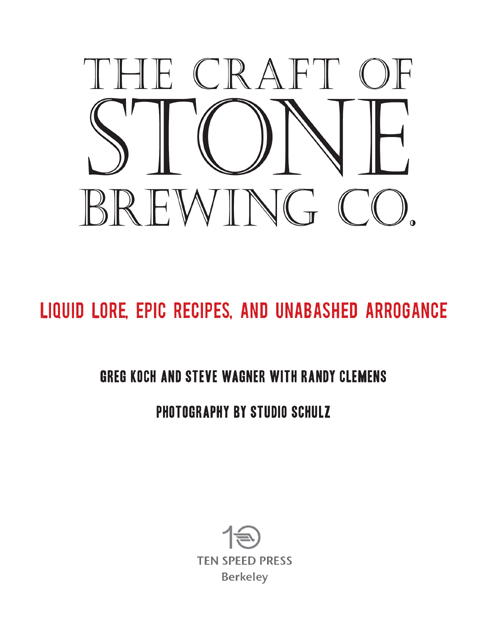Copyright 2011 by Stone Brewing Co. and Randy Clemens
Portions of What is Beer? have been adapted from a previously published article in BeerAdvocate
All rights reserved.
Published in the United States by Ten Speed Press, an imprint of the Crown Publishing Group, a division of Random House, Inc., New York.
www.crownpublishing.com
www.tenspeed.com
Ten Speed Press and the Ten Speed Press colophon are registered trademarks of Random House, Inc.
Photographs copyright 19972011 by John Schulz Photography, www.studioschulz.com
Photographs courtesy Stone Brewing Co.
Photograph courtesy Anchor Brewing Company
Photograph courtesy Charlie Papazian
Photographs courtesy Belgian Brewers
Photograph courtesy Darren Bradley
Illustration courtesy Arne Frantell
Library of Congress Cataloging-in-Publication Data is on file with the publisher.
eISBN: 978-1-60774-056-8
v3.1
CONTENTS
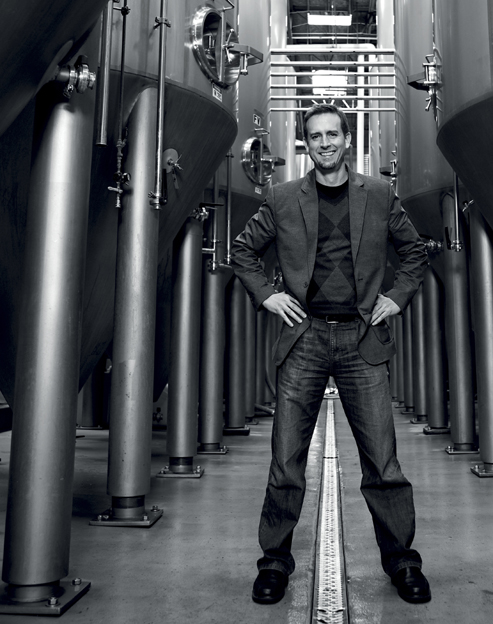
Howdy. Greg here, with a story to share. And as youll note on the cover, right beside my name is that of my good friend and business partner for over fifteen years now, Mr. Steve Wagner. And, if you know anything about us other than the fact that we like (and make) great beer, its that Im sort of the loud (some might even say outspoken) voice of the operation, while Steve has been the more quiet (some might even say reserved) voice that is just as happy to let the beer speak for him. While this story is just as much his as it is mine, I guess I like the sound of my own voice more than Steve likes his. That being said, why dont I start?
So, were a brewery. Why would we want to write a book? What makes our tale different or more interesting than the stories of mega breweries? Well, were a craft brewery, and that unquestionably adds interest. I mean, we get to be creative and inventive, have fun, and make tasty beer without being brought down by some marketing departments focus group-driven ideas about what beer some random sampling of the populace thinks that perhaps they might think that others might think they might want. Wait, what? Hell, I barely understood what I just said there, so you can imagine my level of interest in any conclusions that might come out of interpreting the key matrices of the core objectives when overlaid with extrapolated bell curves and consumer acceptance coefficients. The truth is, I have no idea what I just said there, either. The closest I get to that whole world of data analysis world is reading Dilbert, which is plenty close enough. But I digress.
I was heading toward telling you why I thought a book about the Stone Brewing Co. story might be a good ideaworthwhile or, hopefully, at least not boring. And that reason is drum roll, please that I wanted to share the very simple idea that doing it our way is better. And by our way I really mean your way. No, we dont do it your wayyou do. We do it our way. Huh? Okay, maybe its best to put it into the third person: What I mean is, I believe that things are almost universally better when people do something the way they think it should be donethe way they truly think is the best way.
The caveat isand this is a pretty fundamental onethat you have to be good at what you want to do. For those of us at Stone Brewing Co., its brewing tasty beer in our own particular style, and conducting our business in ways that have respected our personal and collective goals to do betternot John Q. Publics version of better, but our version of better. The beauty of this philosophy is that you dont have to agree. You can think that what we do is odd, too different, not good, or just plain awful. Thats all okay, because if you dont like what we do, the reasons that we should pay attention to what you think are reduced, rather than increased. If you dont care for what we do and how we do it, then youre not our customer. And if youre not our customer, we dont need to fashion ourselves to your personal tastes. In fact, we shouldnt. If we did, its questionable whether wed make a loyal customer out of you, and wed almost definitely alienate our customers that have been loyal.
Ill turn it around the other way. If you do something that youre quite good at and youre doing it your way (after all, its always helpful to be unique AND good, rather than just unique or just good), then its simply up to me, as your potential customer, to decide for myself whether or not I like what you do. If I do, then Ive just discovered that finally someone is doing (insert whatever it is that you do or make) it in a way that gets me excited. Im thrilled that youve learned to do what you do so well, and that youre doing it in a way thats unique and special. On the other hand, if I dont like what you do, then I can move on. Sure, I might decide that Im so self-important that the best possible thing I could do for you is explain how much better it would be if youd do what you do the way I think you should do it. But if youre smart, youll file my comments along with those of all the other tens, hundreds, or thousands of people who have offered up their invaluable advice in that special filing systemyou know, the round one thats under your desk or in the corner (hopefully with the word Recycling on it).
Now Im not one to say that all advice or perspectives from others is bad. Far from it. So how do you separate the barley from the chaff? Its simple: Does the advice support your vision, or does it attempt to derail it? If the former, lean in. And that, in its own way, is what this book is about. Think about our story as providing a supporting context for your vision, whatever that may beas long as its good and youre good at it (or at least on your way to getting there).
The idea for this book has been fermenting for quite some time. Im often invited to give talks at local universities or for a variety of business groups, and I enjoy the heck out of it. Its fun sharing the story of our unique brand of success, and I like advocating the do it your way philosophy. Folks love asking all kinds of questions about our business philosophy and why weve been such a fast-growing company for so long, and, of course, they love to ask all kinds of questions about beer.
Ive also enjoyed keeping records of our journey over the years, in the form of photos, old notes, video blogs, beer bottles, other memorabilia, and so on. Gathering all of that stuff is sort of like scrapbooking, but for a business. But theres a challenge: while I love collecting all that stuff, Im too damn busy to do anything other than collect. Of course, if I truly wanted to spend time going through everything, Id find the time. I cant stand it, though; I prefer to look forward. Every time I go looking for an old photo, it takes way too long and I get way too impatient.
So whats a would-be writer to do? Find a coauthor, of course. But that wasnt a natural inclination for me. Im a do-it-yourselfer, especially when its something I know I can door at least think I can do. No way am I going to farm it out. That seems like a form of cheating.


